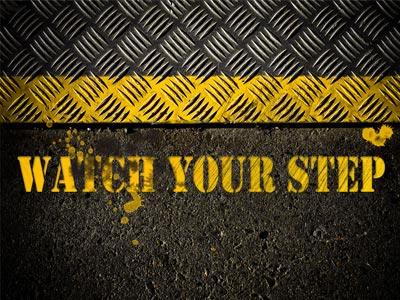-
A Different Kind Of Blindness
Contributed by The Rev Deniray Mueller on Mar 16, 2020 (message contributor)
Summary: Jesus can heal us from our spiritual blindness if we will just allow Him
As Jesus walked along, he saw a man who was blind from birth. Jesus’ disciples asked, “Rabbi, who sinned so that he was born blind, this man or his parents?” Jesus answered, “Neither he nor his parents. This happened so that God’s mighty works might be displayed in him. While I am in the world, I am the light of the world.” After he said this, he spit on the ground, made mud with the saliva, and smeared the mud on the man’s eyes. Jesus said to him, “Go, wash in the pool of Siloam” (this word means sent). So the man went away and washed. When he returned, he could see. The man’s neighbors and those who used to see him when he was a beggar said, “Isn’t this the man who used to sit and beg?” Some said, “It is,” and others said, “No, it’s someone who looks like him.” But the man said, “Yes, it’s me!” So they asked him, “How are you now able to see?” He answered, “The man they call Jesus made mud, smeared it on my eyes, and said, ‘Go to the Pool of Siloam and wash.’ So I went and washed, and then I could see.” They asked, “Where is this man?” He replied, “I don’t know.” Then they led the man who had been born blind to the Pharisees. Now Jesus made the mud and smeared it on the man’s eyes on a Sabbath day. So Pharisees also asked him how he was able to see. The man told them, “He put mud on my eyes, I washed, and now I see.” Some Pharisees said, “This man isn’t from God, because he breaks the Sabbath law.” Others said, “How can a sinner do miraculous signs like these?” So they were divided. Some of the Pharisees questioned the man who had been born blind again: “What do you have to say about him, since he healed your eyes?” He replied, “He’s a prophet.” The Jewish authorities had already decided that whoever confessed Jesus to be the Christ would be expelled from the synagogue. The man answered, “I don’t know whether he’s a sinner. Here’s what I do know: I was blind and now I see.” Jesus heard they had expelled the man born blind. Jesus said, “I have come into the world to exercise judgment so that those who don’t see can see and those who see will become blind.” Some Pharisees who were with him heard what he said and asked, “Surely we aren’t blind, are we?” Jesus said to them, “If you were blind, you wouldn’t have any sin, but now that you say, ‘We see,’ your sin remains. accountable for every fault and failure.” (John 9:1-41)
We just heard one of the many ‘miracle’ stories in the Bible - about Jesus’ ability to heal those with afflictions.
Our story today unfolds as Jesus and his disciples are walking through Jerusalem. They see a man who is blind, in fact, blind from birth. It was the common understanding of that time that when illness occurred, it was God’s way of punishing people for their sin. So we are not surprised to hear
Jesus’ disciples say, “Who sinned, this man or his parents, that he was born blind? (John 9:2).
Jesus immediately clears this up for us by saying that this has nothing to do with sin in this man’s life or his parent’s. God is not punishing them; God is not angry with them. Jesus solidly states that the concept of ‘original sin’ is a construct of man, not God. Every day God shows His love and pours out His blessings to all His children.
There are two kinds of blindness in the story. One is of the man who was born with a physical defect of blindness. The second is of the religious folk who had a spiritual defect and were spiritually blind. The lesson tells us that spiritual blindness is far worse than physical blindness. Physical blindness can be healed, but spiritual blindness resists healing.
In the gospel we have this interesting dialogue between the man who had been blind and the Pharisees. The Pharisees begin to question him; they want to know how he received his sight. They want to know who healed him, and they want to know what the man believes about Jesus. They believe Jesus cannot possibly be from God because he broke the religious law and healed on the Sabbath. They seem to miss the point that the man’s healing is a miracle — a miracle that had never been heard of before. For some reason that miracle doesn’t seem to matter to them at all.
Indeed, this is one of many instances in the Bible where Jesus ‘broke’ man-made rules to do the work of God.

 Sermon Central
Sermon Central



